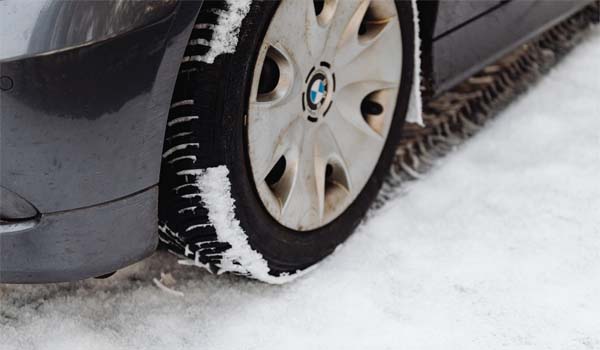Are All-Season Tires Good For Snow?
Do you need a dedicated snow tire? Will all-seasons work in the snow? This common tire question gets asked by many drivers as winter approaches. Tires have a variety of different tread patterns and rubber compounds that make them more effective in certain road conditions. Understanding these differences can help you decide whether you need a committed winter tire or if an all-season will work for you.
What conditions are all-season tires good for?
All-season tires offer some of the smoothness and comfort of a summer tire with some of the traction of a true winter tire. They offer better traction on variable roads but retain comfort and better fuel economy that winter tires lack. In general, all-seasons work well on wet roads, mild winter weather, and temperatures at or above 45° F.
The rubber compound is impacted by temperature
One of the main reasons all-season tires are not as effective in cold, wintery conditions is because of the rubber compound they use. Below 45° F, the rubber gets significantly stiffer. With less flexibility, the tire does not offer the same level of grip. Combine this with ice, snow, and slush, and the tire becomes much more likely to break traction.
Winter tires use a rubber compound that retains its flexibility in sustained cold temperatures. Because of this, snow tires can provide effective traction on snow and ice regardless of temperature.
Tire construction allows for more traction
Winter and snow tires are designed differently than all-season and summer tires. They typically have wider, deeper, and more jagged tread that gets better purchase on snow and ice. Snow tires also have significantly more siping. Sipes are small slits in rubber tread blocks. When you drive, the sipes open up, moving slush and water out of the tire’s contact patch. They allow for drastically improved traction on variable roads.
Should I get winter tires?
It all depends on where you live and the conditions you drive in. If you live in a place that sees regular heavy snow and extended periods of freezing temperatures, snow tires are highly recommended. Every trip you make in the winter will be safer for you and those around you.
If you live in an area that is a bit milder, but you frequently make trips into the mountains for skiing or other activities, snow tires are still your best bet. While you may not need the extra traction at home or during the week, having it when you are driving a hazardous mountain will ensure you don’t get stuck or go off the road.
Lastly, if you live in an area that stays mild in the winter with light snow and a few days of really cold weather, all-season tires may be a better option. If you do not need the extra traction, the fuel economy and comfort of an all-season will be beneficial.

Isn’t changing between summer and winter tires a pain?
Not having to change tires twice a year is what makes all-seasons so appealing to so many drivers. While it may seem inconvenient, there are things you can do to make the change over less of a hassle.
Use a set of winter wheels
Purchasing a set of inexpensive wheels to mount your winter tires on will make your yearly tire change easier. Instead of removing a set of tires from the wheels and mounting another set, you simply have to swap out the “summer wheels” for the “winter wheels”. Having a set of inexpensive winter wheels also protects the expensive alloys your car may have from corrosion due to road salts/other debris.
Time your tire changes with vehicle service
Instead of making an appointment just to get your tires changed in the fall and spring, have it done when your vehicle is getting an oil change, brake service, or other regular maintenance. It’s a good idea to service your vehicle before and after winter anyway!
Yearly changeovers extend the life of your tires
Having a set of summer and winter tires means they are each used for half the year. This extends the life of your tires, meaning you won’t have to buy new ones for several seasons.
Come visit the tire experts at Matson Point S!
Utah drivers should have a set of proper snow tires to handle the winter weather we see in our state. If you need help selecting the best winter tire for your car or budget, or need to schedule a tire changeover, give us a call, or schedule an appointment. Our skilled technicians will make sure your car is ready for the winter.
